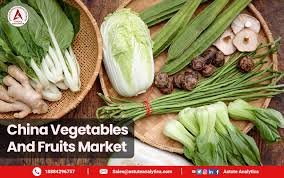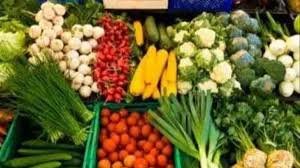China’s Dominance in Global Vegetable Production
Leading the Global Market
China holds the top position in global vegetable production, contributing approximately 50% of the total output with around 749 million tons annually. This significant volume underscores China’s pivotal role in global agriculture, ensuring a substantial portion of the world’s vegetable supply.
Factors Behind China’s Success
The success of China’s vegetable production can be attributed to its diverse climate, fertile soil, and extensive agricultural investments. The country’s varied climatic zones support the cultivation of a wide range of vegetables, from leafy greens to root vegetables and fruit vegetables. Popular varieties include Chinese cabbage, cucumbers, potatoes, bitter melon, and soybean sprouts.
Technological Innovations
Technological advancements have played a crucial role in boosting China’s vegetable production. The development of high-yield, pest-resistant vegetable varieties, extensive greenhouse farming, and advanced irrigation and fertilization systems have all contributed to increased productivity. These innovations allow for year-round production and efficient resource use.
Environmental Challenges
Despite the benefits of large-scale vegetable production, China faces significant environmental challenges. Intensive farming practices have led to soil degradation and pollution, necessitating sustainable agricultural practices to mitigate these issues and ensure long-term productivity.
Global Impact and Trade
China’s vegetable production not only satisfies domestic demand but also has a significant impact on global markets. As a major exporter, China supplies various types of vegetables to countries worldwide, playing a critical role in global food security and diversity.

Why This News is Important
Significance for Competitive Exams
Understanding China’s dominance in vegetable production is crucial for candidates preparing for competitive exams. It highlights the importance of agriculture in global economics and trade, which is a common topic in exams for government positions.
Insights into Agricultural Practices
This news provides valuable insights into advanced agricultural practices and technological innovations. Examining China’s methods can offer lessons in improving agricultural productivity and sustainability, relevant for exams focusing on environmental science and public administration.
Global Food Security
China’s role in global vegetable production emphasizes the interconnectedness of global food security. This topic is essential for exams covering international relations, economics, and geography, demonstrating the importance of one country’s agricultural output on the global stage.
Historical Context
Evolution of China’s Agricultural Sector
China’s agricultural sector has evolved significantly over the decades. Post-1978 economic reforms led to a shift towards market-oriented farming, boosting productivity and innovation. The introduction of the Household Responsibility System allowed farmers to make independent production decisions, leading to increased efficiency and output.
Technological Advancements
In the late 20th and early 21st centuries, China invested heavily in agricultural technology. The development of high-yield crop varieties and advanced farming techniques revolutionized its agricultural landscape. These advancements helped China become a global leader in vegetable production.
Environmental Considerations
Historically, intensive agricultural practices have led to environmental challenges in China. Soil degradation and pollution from overuse of fertilizers and pesticides prompted the government to implement sustainable farming practices. These measures are crucial for maintaining long-term agricultural productivity.
Key Takeaways from “China’s Dominance in Global Vegetable Production”
| Serial Number | Key Takeaway |
|---|---|
| 1 | China is the largest vegetable producer, contributing 50% of global production. |
| 2 | The success is due to diverse climate, fertile soil, and extensive agricultural investments. |
| 3 | Technological advancements such as high-yield varieties and greenhouse farming have boosted productivity. |
| 4 | Environmental challenges include soil degradation and pollution from intensive farming. |
| 5 | China’s vegetable production significantly impacts global markets, ensuring food security and diversity. |
Important FAQs for Students from this News
1. Why is China the largest vegetable producer in the world?
- China has a diverse climate, fertile soil, and significant agricultural investments, which contribute to its high vegetable production.
2. What types of vegetables are commonly produced in China?
- Common vegetables include Chinese cabbage, cucumbers, potatoes, bitter melon, and soybean sprouts.
3. How has technology impacted China’s vegetable production?
- Technological advancements, such as high-yield crop varieties, greenhouse farming, and advanced irrigation systems, have significantly boosted productivity.
4. What are the environmental challenges faced by China due to intensive vegetable farming?
- Intensive farming practices have led to soil degradation and pollution, prompting the need for sustainable agricultural practices.
5. How does China’s vegetable production impact global markets?
- China is a major exporter of vegetables, playing a crucial role in global food security and market diversity.
Some Important Current Affairs Links


















